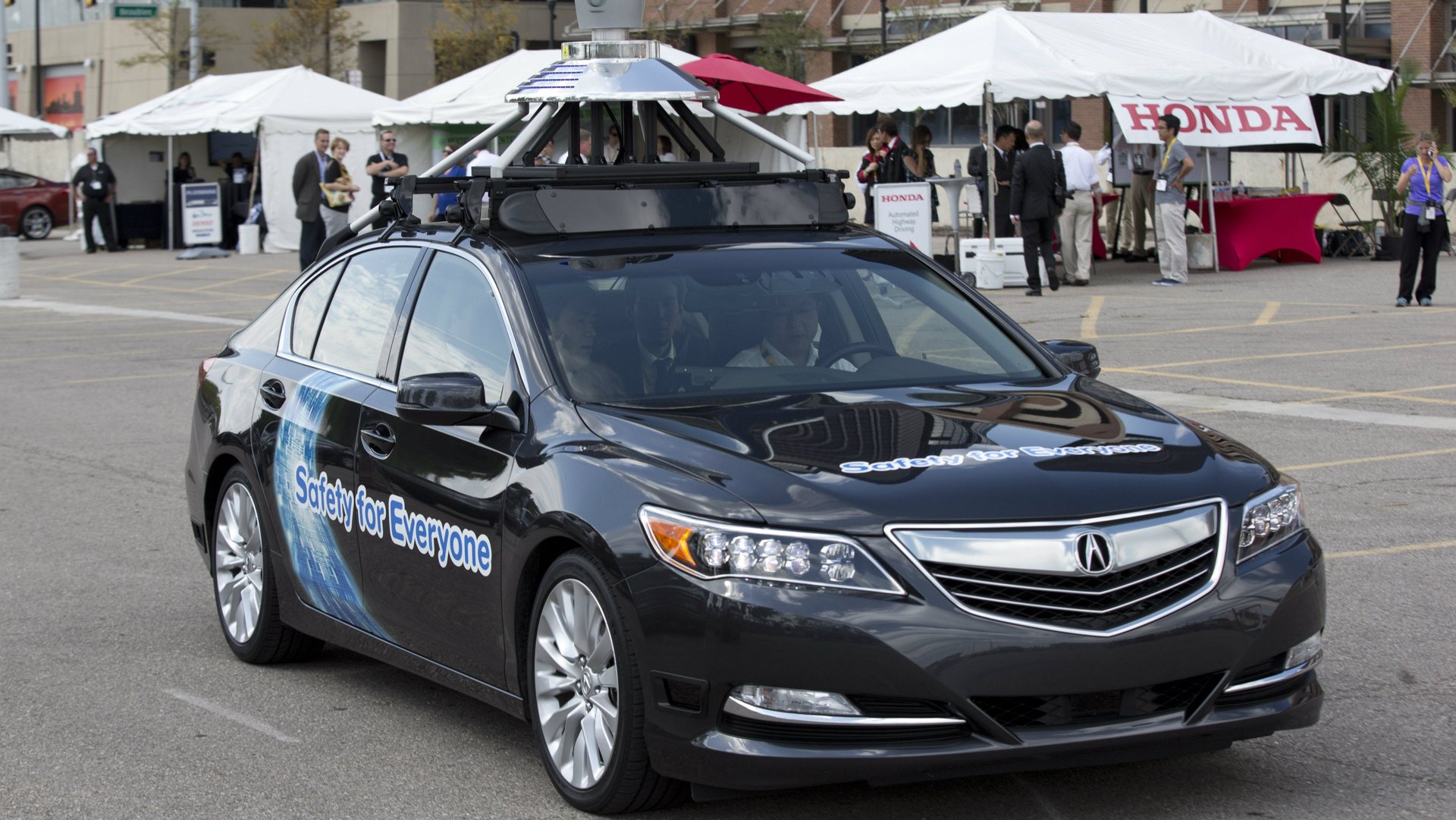The world’s biggest automakers think humans will always want to drive their own cars
Silicon Valley seems to think that the march to self-driving vehicles is inexorable, but the carmaking industry’s biggest players are betting that most drivers prefer to keep their hands on the wheel.


Silicon Valley seems to think that the march to self-driving vehicles is inexorable, but the carmaking industry’s biggest players are betting that most drivers prefer to keep their hands on the wheel.
According to one estimate, self-driving technology in cars may grow into a $42 billion industry in just a decade. Google is zooming to a fully self-driving commercial vehicle. Tesla is on its way, and Apple is seriously building the capability to develop an autonomous-vehicle, though it’s still not known whether it will actually do so. And not just Silicon Valley, but virtually every big carmaker is developing self-driving vehicles, too.
But not the world’s two largest carmakers. In a stubborn snub to one of the biggest new technological manias, VW and Toyota both have long-term strategies in which their cars will only perform some functions by themselves, such as taking over in bumper-to-bumper traffic and parking your vehicle.
VW, the largest carmaker, believes that “the desire for freedom of individual mobility is here to stay,” Barclays said today in a brief note to clients. The note summarized remarks made at a Sept. 4 Barclays conference in London on driverless vehicles. “Driverless cars are not in VW’s roadmap. Their strategy is to support the driver, not to replace him or her,” the bank said.
The No. 2 carmaker, Toyota, has hired the senior-most robotics export from the US Defense Advanced Research Projects Agency (DARPA), the Pentagon’s radical innovation laboratory, and donated $50 million to Stanford and the Massachusetts Institute of Technology to develop an intelligent car.
Still, while developing an eventual self-driving option, Toyota intends to keep the motorist at the center of its future vehicles. In an interview with the Financial Times, Toyota’s Kiyotaka Ise said, “To us, it is like a train without an operator. We always want to keep drivers in the vehicle and in control.”
No one can say who will be right—Google, with its belief that the world will go driverless, or VW and Toyota, which are happy to let Google take the risk first, but for now gamble less by going only half-way.
The VW-Toyota strategy seems solid: It’s true that, for occupations such as long-haul truck driving, allowing technology to steer the vehicle makes sense, especially from a safety perspective. But it’s hard to believe that future drivers, even in cities, will ever agree to be ever and always mere passengers. Around the world, the sensation of controlling one’s own way through the chaos—when every other driver on the road is an idiot, and danger lurks along every mile—is still seen as one of the purest remaining expressions of freedom.